



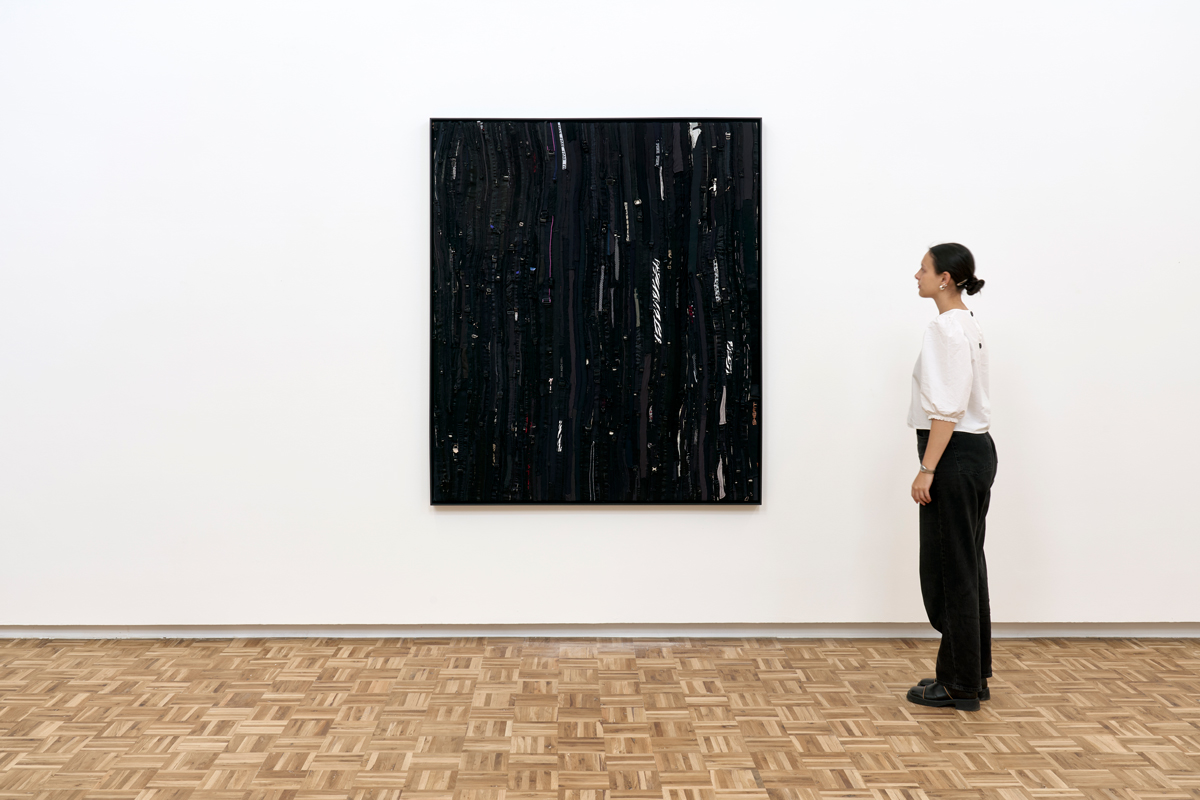












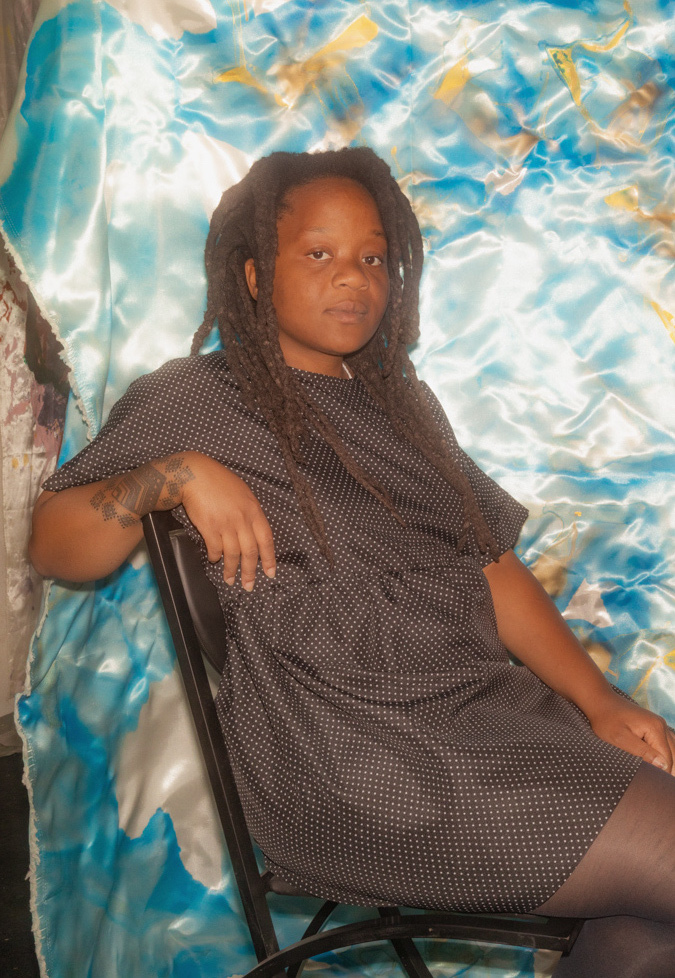
Photo: Neven Allgeier
Working with textile collage, installation, performance and video, Mukwazhi examines the politicisation and instrumentalization of the female body as a contested site upon which the power dynamics of patriarchal society are played out. In recent works, she explores the underlying structures of systemic gender-based violence and deconstructs narratives that marginalize women in Zimbabwean society. By challenging cultural norms of femininity and taboos related to female agency, Mukwazhi highlights the importance of addressing latent forms of patriarchy. Her practice is an expression of her commitment to solidarity, empowerment, and care for marginalized communities and strives to provide a platform for resistance and self-empowerment.
Based in Harare, Zimbabwe, Mukwazhi has exhibited locally and internationally at institutions such as the Nottingham Contemporary, Nottingham; the Secession, Vienna; Philara Foundation, Dusseldorf; Kunsthalle Emden, Emden; the Zimbabwean Pavilion, La Biennale di Venezia, Venice; Kunstmuseum Wolfsburg, Wolfsburg; Norval Foundation, Cape Town; Iziko South African National Gallery, Cape Town; the Zeitz Museum of Contemporary Art Africa (MOCAA), Cape Town; the Netherlands Institute of Sound and Vision, Hilversum; SAVVY Contemporary at Njelele Art Station, Harare; and the National Gallery of Zimbabwe, Bulawayo. Her work is represented in several notable private and public collections, including the Museum Ludwig and Musée d'Art Moderne de Paris.
—
curriculum vitae
1992 Born in Harare, Zimbabwe
education
2012 National Gallery School of Visual Art and Design, Harare, Zimbabwe
2014 Market Photo Workshop, Johannesburg, South Africa
solo exhibitions
2025 ndakangavara, kaufmann repetto, Milan
2025 Nyika irikure nezuva, kaufmann repetto, New York
2024 Gupuro, Jan Kaps, Cologne
2024 Schultze Projects #4 Kresiah Mukwazhi, Museum Ludwig, Cologne
2024 Body Count, blank projects, Cape Town
2023 Kirawa, Nottingham Contemporary, Nottingham
2023 Kirawa, Secession, Vienna
2022 Ndakamira pamukaha (Standing my ground till it cracks), Jan Kaps, Cologne
2021 Zviratidzo, blank projects, Cape Town
2020 Mukando, Jan Kaps, Cologne
2018 Bedroom Interview, SMAC Gallery, Cape Town
group exhibitions
2024 Kuvhunura: l’Ecole d’Harare, Fondation Blachère, Bonnieux
2023 Strike Fast, Dance Lightly: Artists on Boxing, The FLAG Art Foundation, New York
2023 I’ve only got eyes for you, Philara Foundation, Dusseldorf
2023 Kunst-Stoff. Textile as Artistic Material, Kunst Halle Emden, Emden
2022 Zimbabwean Pavilion, 59th International Art Exhibition, La Biennale di Venezia, Venice
2022 #empowerment, Planetarische Feminismen, Kunstmuseum Wolfsburg, Wolfsburg
2021 OFF ROAD II, Zeno X Gallery, Antwerp
2021 Mixed Company, Norval Foundation, Cape Town
2020 Love your symptoms, but not too much, blank projects, Cape Town
2020 Materiality, Iziko South African National Gallery, Cape Town
2019 African Textures. Jeanne Gaigher, Kresiah Mukwazhi, Marlene Steyn, Osart Gallery, Milan, Italy
2019 The Female Line, SMAC Gallery, Cape Town
2019 Conversations in Texture, Berman Contemporary, Johannesburg
2019 Legitimate Expectations, Market Photo Workshop, Johannesburg
2019 Not the Usual Suspects, Iziko Museums, Cape Town
2019 Five Bhobh – Painting at the End of an Era, Zeitz Museum of Contemporary Art Africa (MOCAA), Cape Town
2019 Prism of Freedom, Netherlands Institute of Sound and Vision
2018 Legitimate Expectations, Market Photo Workshop, Johannesburg
2018 PARA_OTHER – Chale Wote Street Art Festival, Accra
2017 That, Around Which the Universe Revolves, Kapitel 3 - Harare, SAVVY Contemporary, Berlin at Njelele Art Station, Harare
2017 Disclosure, SMAC Gallery, Cape Town
2016 Nhaka/Ilifa/Inheritance, Zimbabwe Annual Exhibition National Gallery of Zimbabwe
2016 In My Private Moments, National Gallery of Zimbabwe, Bulawayo
2015 GWANZA month of photography, Village Unhu, Harare
2015 Migration, Gallery Delta, Harare (First price in the ‘mixed media sculptural work’ category)
selected awards + residencies
2023 Hera Hera (hail hail), Nottingham Contemporary, UK
2020 Online Fellowship, Institute for Creative Arts - ICA, Cape Town
2019 Arts of Africa and Global Souths, Rhodes University with Performance, Summoned from Luzari, Makhanda, South Africa
2019 Nafasi Art Space with Performance, Pamuchakata, Dar es Salaam, Tanzania
2018 Recipient of the research residency, ANT Mobility Grant, Pro Helvetia, Johannesburg
2018 Katutura Art Centre, Windhoek, Namibia - supported by ANT Mobility Grant, Pro Helvetia
2016-2017 Village Unhu, Harare, Zimbabwe
2015 National Gallery of Zimbabwe, Harare, Zimbabwe
— selected press
2021 Scheper, M. What just happened? ArtReview [online] (published April 2021).
2021 Smolik, N. Kresiah Mukwazhi Gives Sex Workers a Voice. Frieze [online] (published April 2021).
2021 Pohlen, A. Report. Bilder aus der Wirklichkeit. Kunstforum International [online] (published March/April 2021).
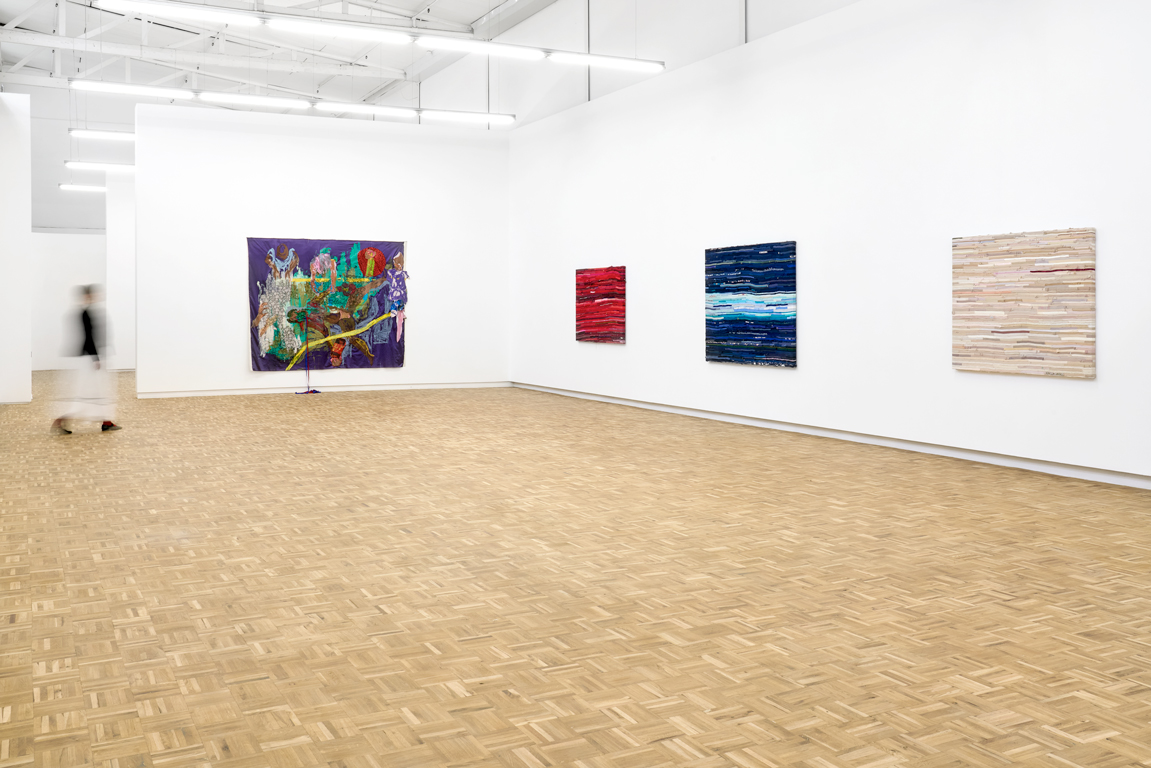
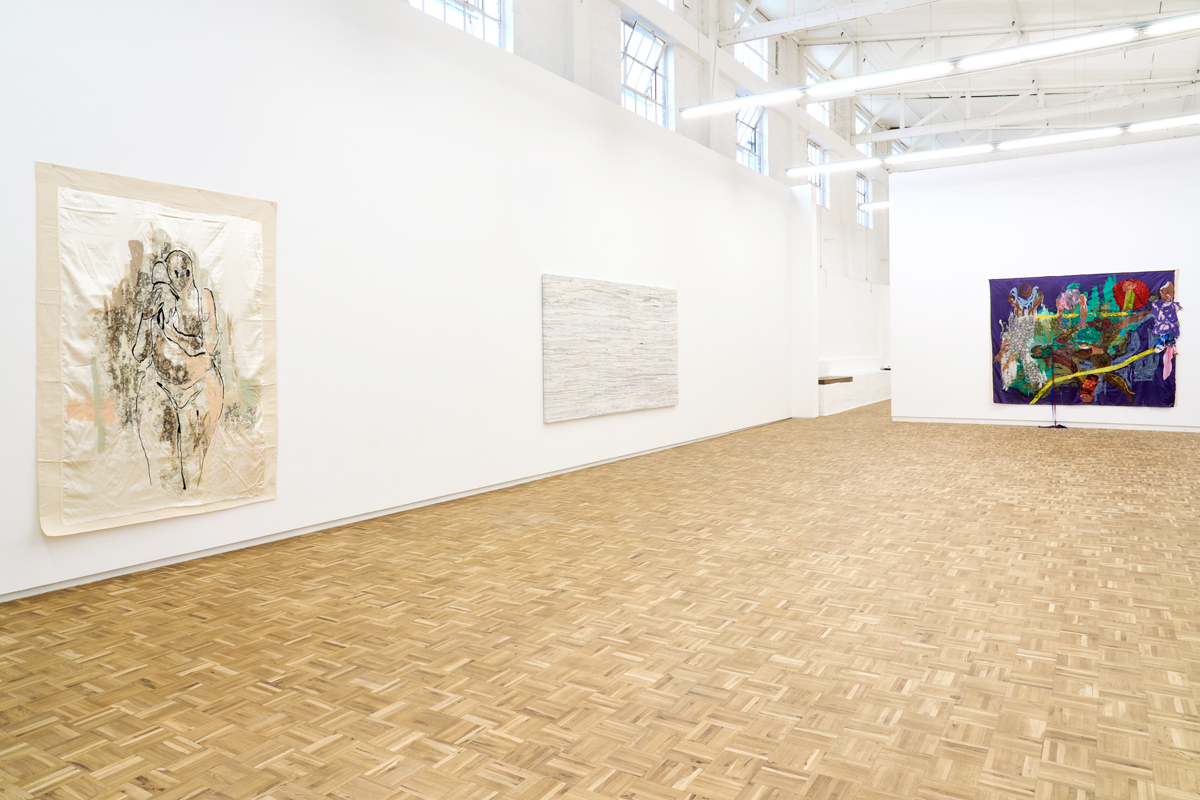
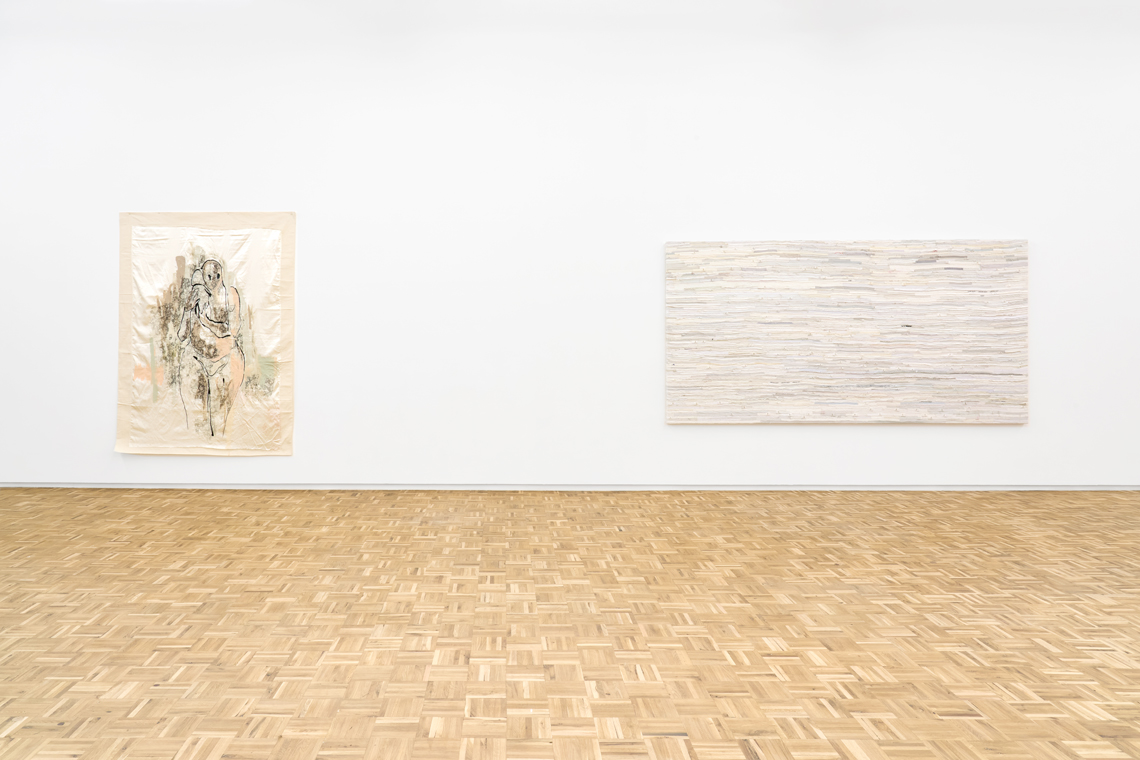
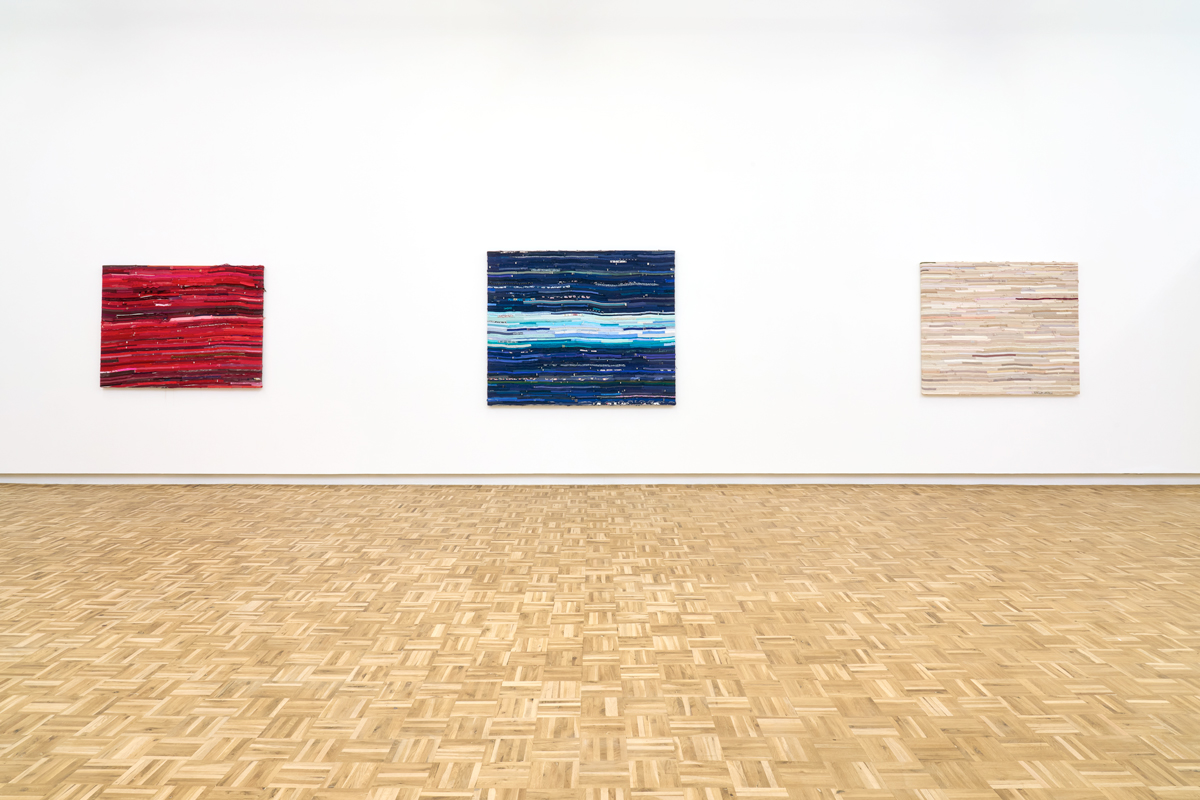
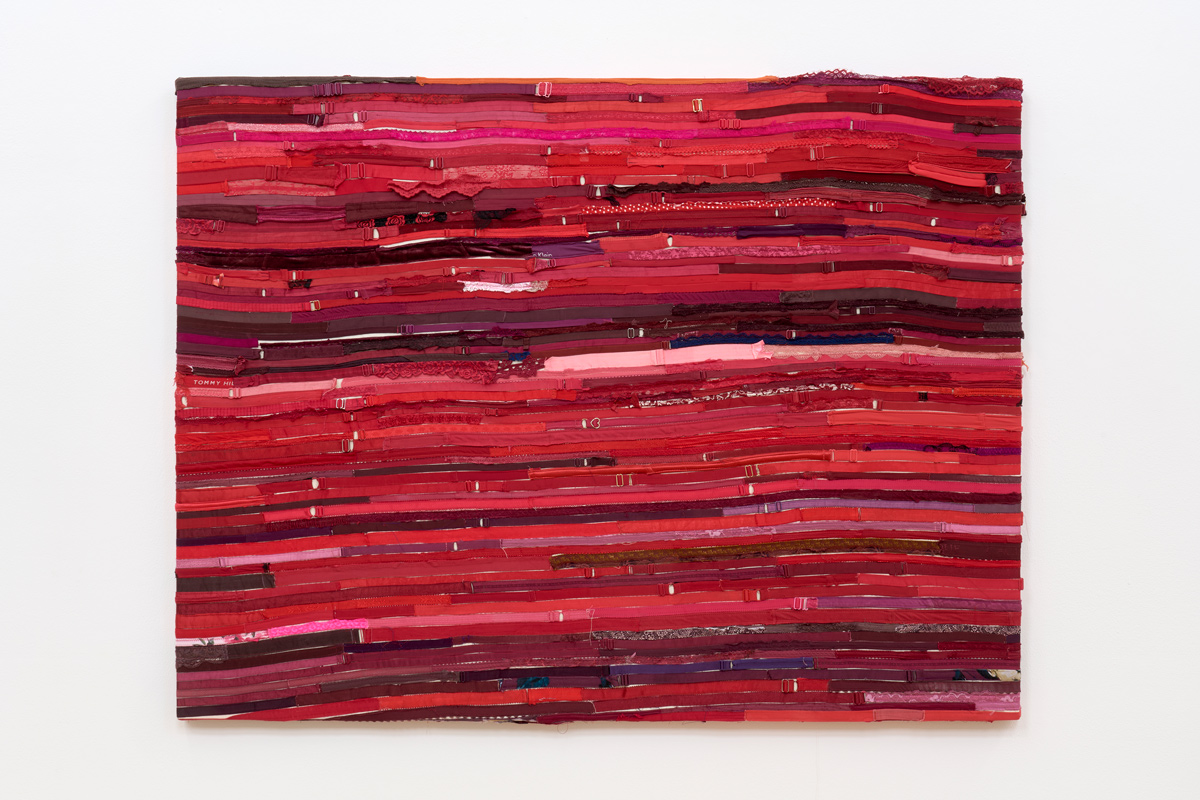



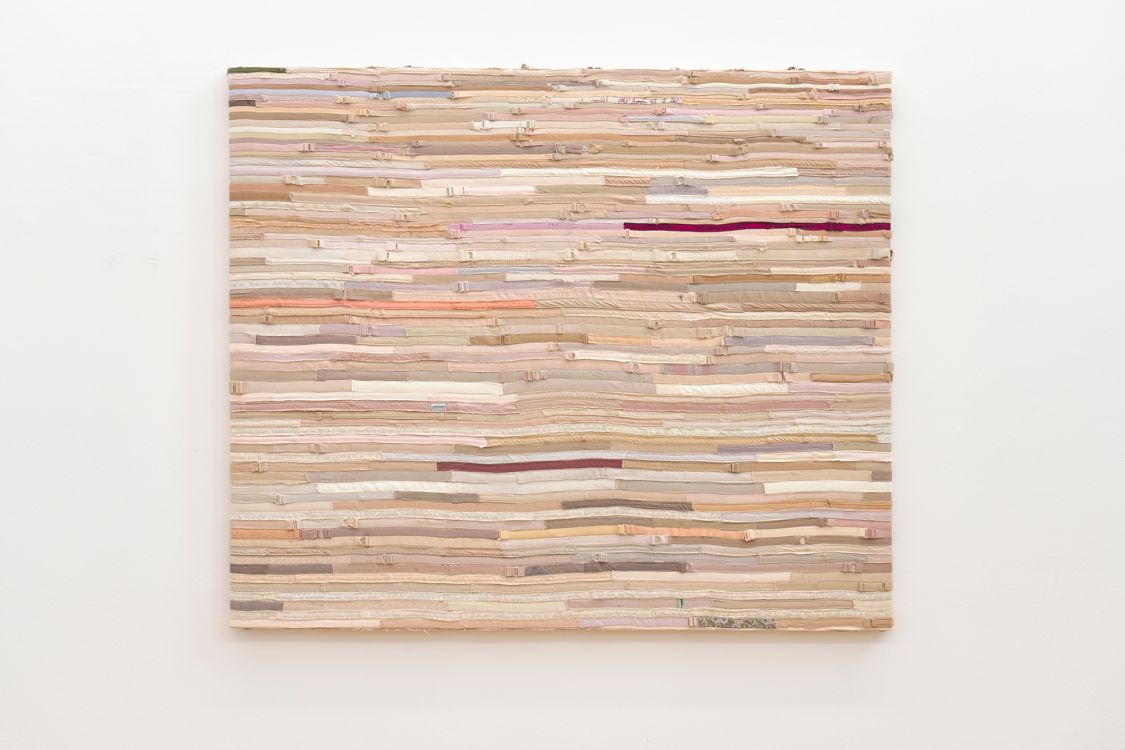






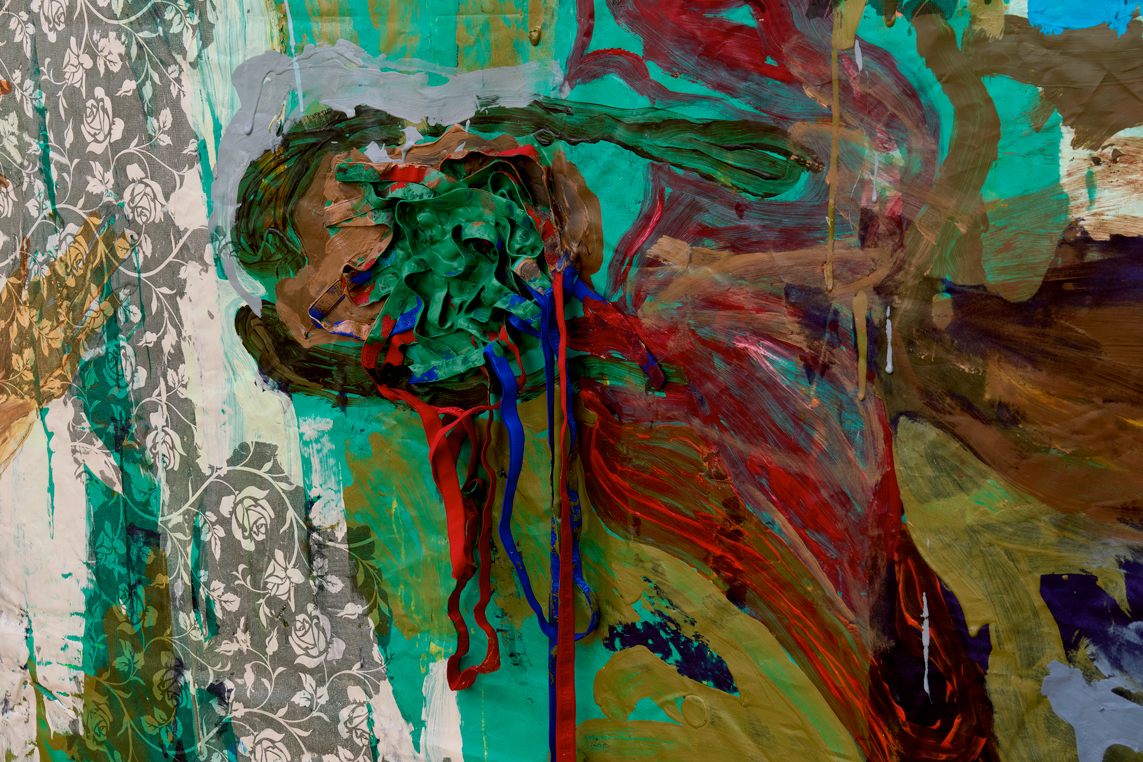
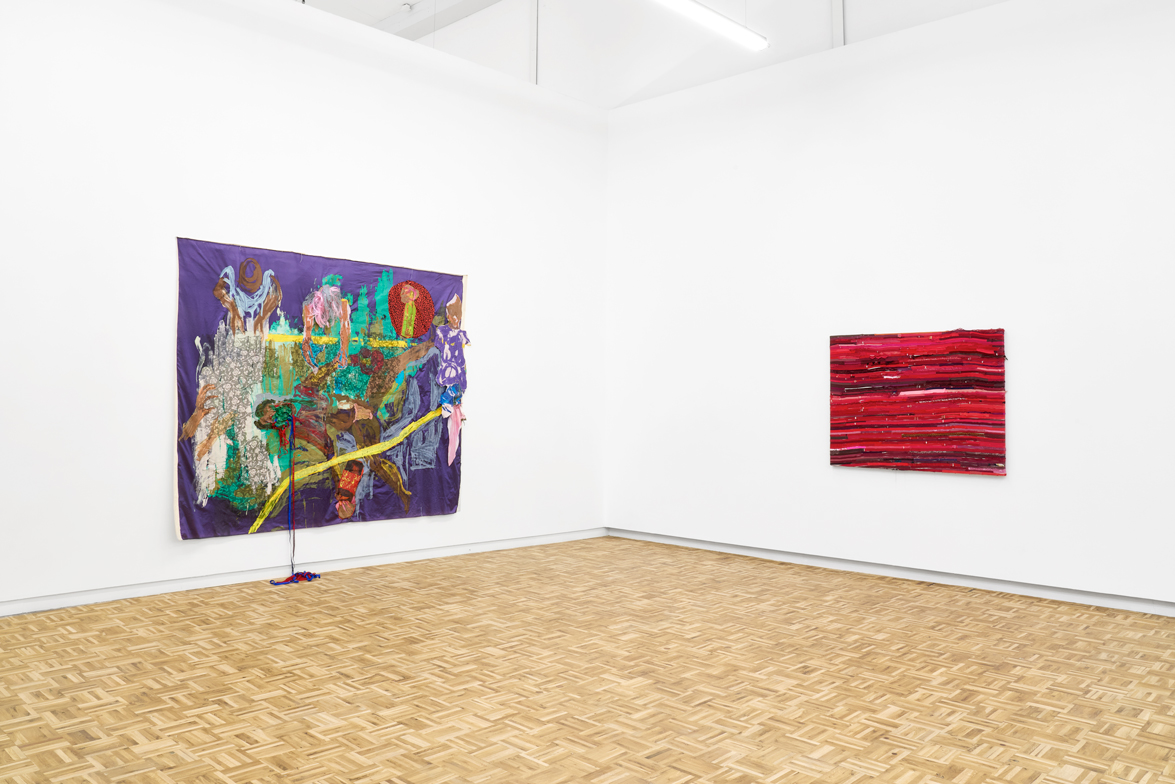
blank is pleased to present Body Count, Kresiah Mukwazhi’s second solo exhibition with the gallery.
Comprising of a new series of textile collages and paintings, Body Count continues the artist’s inquiry into the female body as a political instrument and a contested site upon which the power dynamics of patriarchal society are played out. The exhibition takes its title from the double meaning of the phrase which refers not only to the number of people killed in a singular event but also, in more colloquial terms, the number of sexual partners a person has had. Metaphorically linking these concepts of death and sex, the title points to the contrast in attitudes towards male and female sexual expression and how this dangerous double standard reinforces systemic gender-based discrimination and violence. Mukwazhi draws a parallel between these gendered perceptions of promiscuity and the stigmatisation of female sexuality, identified through both the policing and exploitation of women’s bodies.
Enmeshed in the discourses of patriarchal cultures, traditions, and belief systems, this control over women’s bodies extends to the prescription of accepted codes of behaviour and dress. Connoting sex and femininity, the display of women’s underwear is significant in Zimbabwean society: considered controversial or even taboo if worn revealingly, its wearer judged according to notions of purity and eligibility. (Demonstrating its potency as a symbol, the witchcraft practice known as mubobobo involves the use of woman’s underwear to perform something like telekinetic rape.)
The artist confronts this misogynistic trope by working directly with these culturally loaded objects. Using hundreds of secondhand bras - smuggled into the country in bulk - she carefully deconstructs each piece of underwear, then stitches together and stretches the straps over frames. The resulting compositions recall the many women whose bodies have worn them; they are permeated with the traces of their previous owners, both in the physical and the ‘energetic’ sense. For Mukwazhi, the works gesture too at the countless women who have lost their lives due to violence.
The exhibition also includes two mixed media paintings on found fabrics. The unrest of Movado remembers the violent murder of the sex worker Movado; its brutal image rendered in bright colours on a backdrop of regal purple. Movado’s tragic death is symbolic of the life-threatening conditions of sex work and the vulnerability of the women who are forced to make a living from it. In stark contrast to this work is an intimate self-portrait of the artist with her newborn son. A simple line drawing set against a backdrop of cream-coloured satin with the embedded traces of a floral pattern, the work is a meditation on the artist’s own maternal journey and a celebration of the softness of motherhood and femininity. Mukwazhi’s ‘ode to herself’ becomes a necessary healing counterpoint to the rest of the exhibition.
Born in Harare in 1992, Mukwazhi has exhibited internationally at various institutions including Nottingham Contemporary; The Vienna Secession; Philara Foundation, Dusseldorf; Kunsthalle Emden; the Zimbabwean Pavilion, La Biennale di Venezia; Kunstmuseum Wolfsburg; Norval Foundation, Cape Town; Iziko South African National Gallery, Cape Town; the Zeitz Museum of Contemporary Art Africa (MOCAA), Cape Town; the Netherlands Institute of Sound and Vision, Hilversum; SAVVY Contemporary at Njelele Art Station, Harare; and the National Gallery of Zimbabwe, Bulawayo. Mukwazhi lives and works in Harare, Zimbabwe
Artist news
Kresiah Mukwazhi will realise a large-scale installation for Art Basel Unlimited from 10 to 16 June. This monumental work will be presented jointly by blank projects and Jan Kaps in Cologne.
Comprising of a new series of textile collages and paintings, Body Count continues the artist’s inquiry into the female body as a political instrument and a contested site upon which the power dynamics of patriarchal society are played out. The exhibition takes its title from the double meaning of the phrase which refers not only to the number of people killed in a singular event but also, in more colloquial terms, the number of sexual partners a person has had. Metaphorically linking these concepts of death and sex, the title points to the contrast in attitudes towards male and female sexual expression and how this dangerous double standard reinforces systemic gender-based discrimination and violence. Mukwazhi draws a parallel between these gendered perceptions of promiscuity and the stigmatisation of female sexuality, identified through both the policing and exploitation of women’s bodies.
Enmeshed in the discourses of patriarchal cultures, traditions, and belief systems, this control over women’s bodies extends to the prescription of accepted codes of behaviour and dress. Connoting sex and femininity, the display of women’s underwear is significant in Zimbabwean society: considered controversial or even taboo if worn revealingly, its wearer judged according to notions of purity and eligibility. (Demonstrating its potency as a symbol, the witchcraft practice known as mubobobo involves the use of woman’s underwear to perform something like telekinetic rape.)
The artist confronts this misogynistic trope by working directly with these culturally loaded objects. Using hundreds of secondhand bras - smuggled into the country in bulk - she carefully deconstructs each piece of underwear, then stitches together and stretches the straps over frames. The resulting compositions recall the many women whose bodies have worn them; they are permeated with the traces of their previous owners, both in the physical and the ‘energetic’ sense. For Mukwazhi, the works gesture too at the countless women who have lost their lives due to violence.
The exhibition also includes two mixed media paintings on found fabrics. The unrest of Movado remembers the violent murder of the sex worker Movado; its brutal image rendered in bright colours on a backdrop of regal purple. Movado’s tragic death is symbolic of the life-threatening conditions of sex work and the vulnerability of the women who are forced to make a living from it. In stark contrast to this work is an intimate self-portrait of the artist with her newborn son. A simple line drawing set against a backdrop of cream-coloured satin with the embedded traces of a floral pattern, the work is a meditation on the artist’s own maternal journey and a celebration of the softness of motherhood and femininity. Mukwazhi’s ‘ode to herself’ becomes a necessary healing counterpoint to the rest of the exhibition.
Born in Harare in 1992, Mukwazhi has exhibited internationally at various institutions including Nottingham Contemporary; The Vienna Secession; Philara Foundation, Dusseldorf; Kunsthalle Emden; the Zimbabwean Pavilion, La Biennale di Venezia; Kunstmuseum Wolfsburg; Norval Foundation, Cape Town; Iziko South African National Gallery, Cape Town; the Zeitz Museum of Contemporary Art Africa (MOCAA), Cape Town; the Netherlands Institute of Sound and Vision, Hilversum; SAVVY Contemporary at Njelele Art Station, Harare; and the National Gallery of Zimbabwe, Bulawayo. Mukwazhi lives and works in Harare, Zimbabwe
Artist news
Kresiah Mukwazhi will realise a large-scale installation for Art Basel Unlimited from 10 to 16 June. This monumental work will be presented jointly by blank projects and Jan Kaps in Cologne.
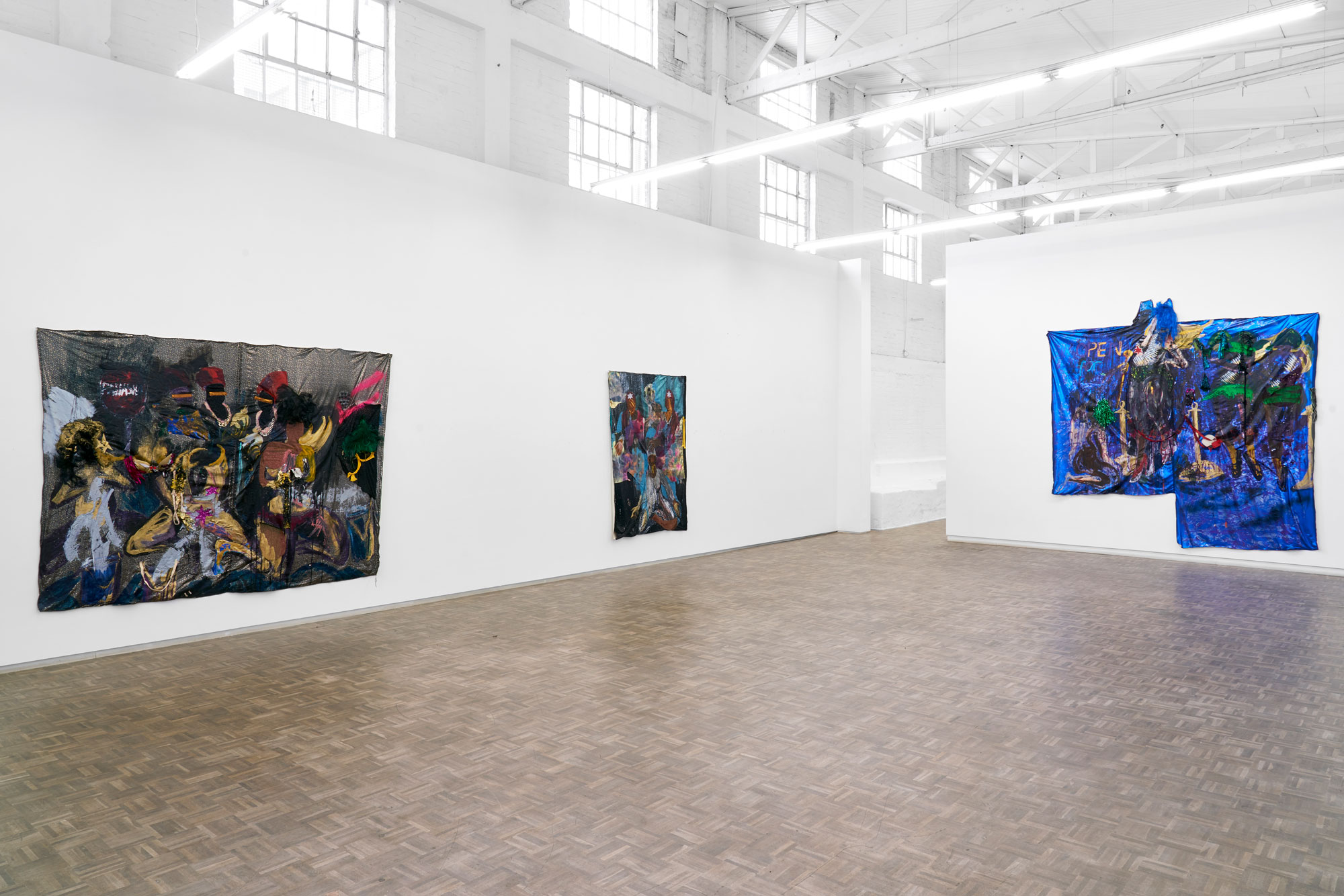

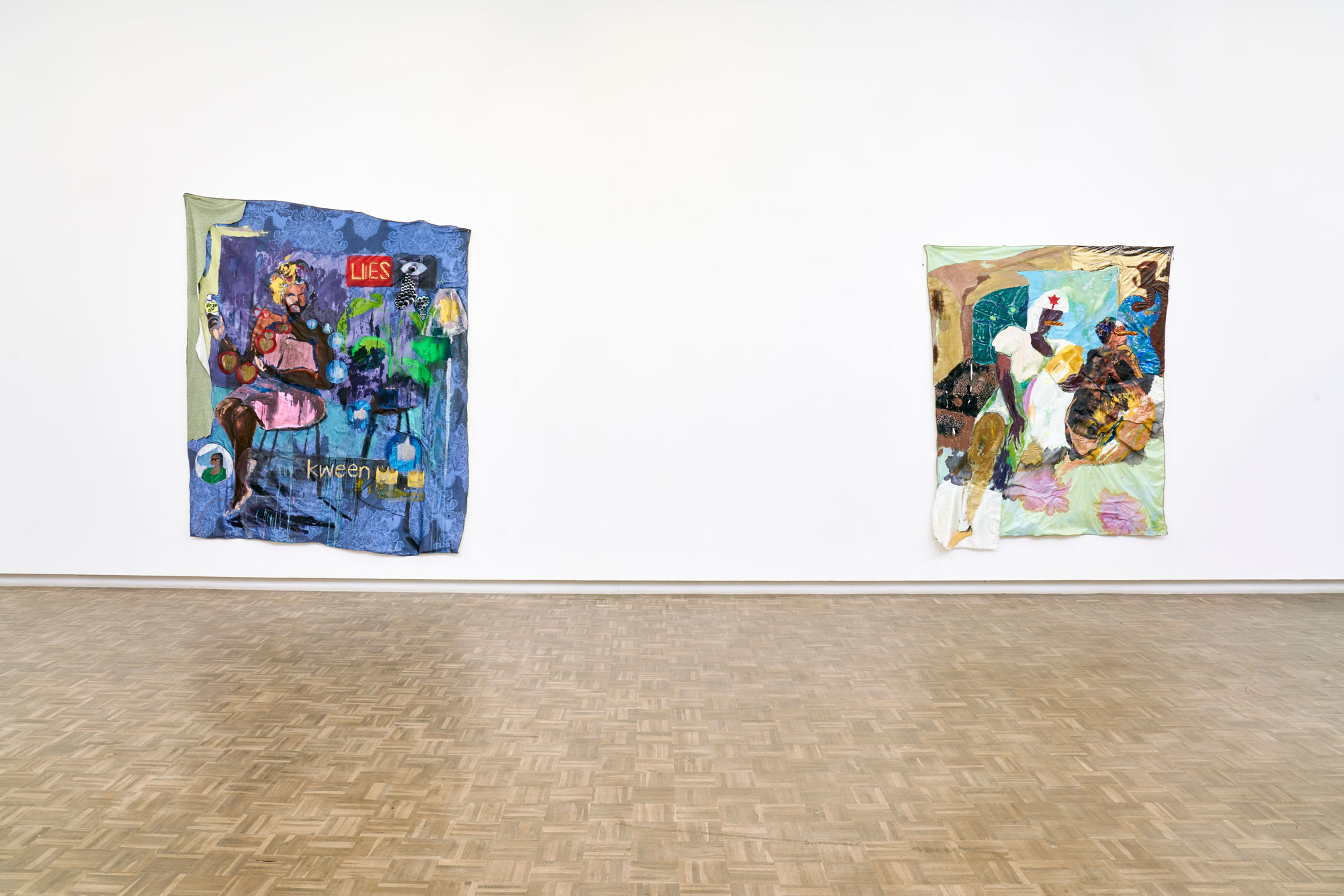
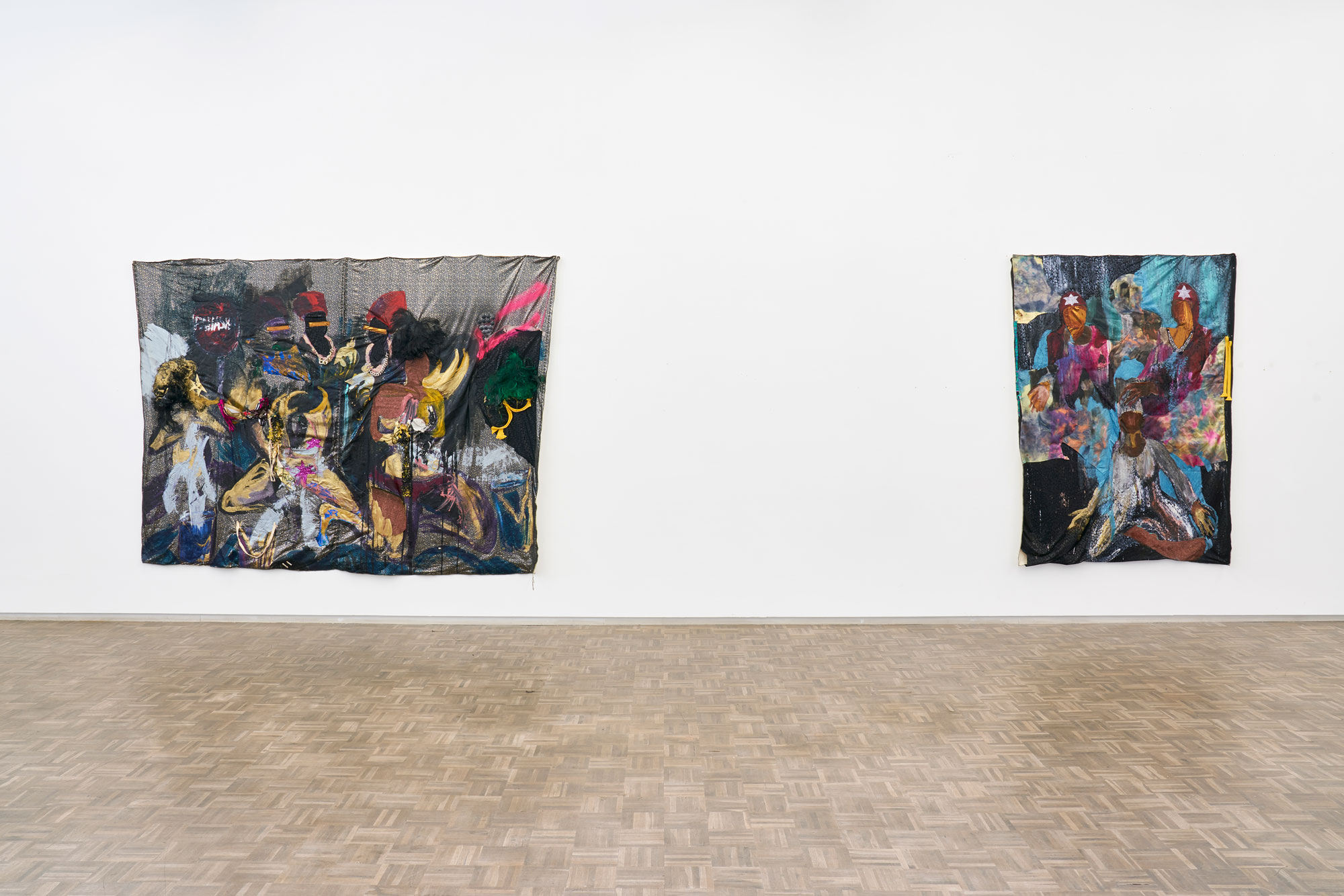











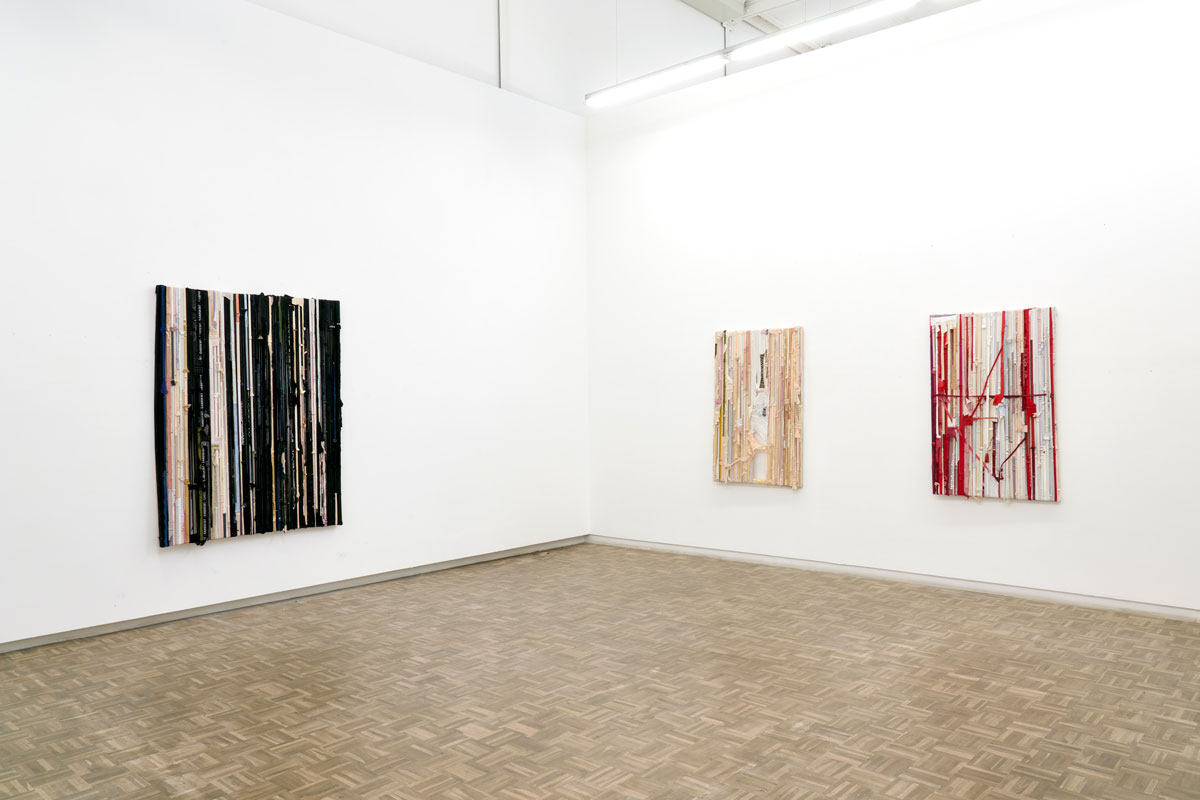








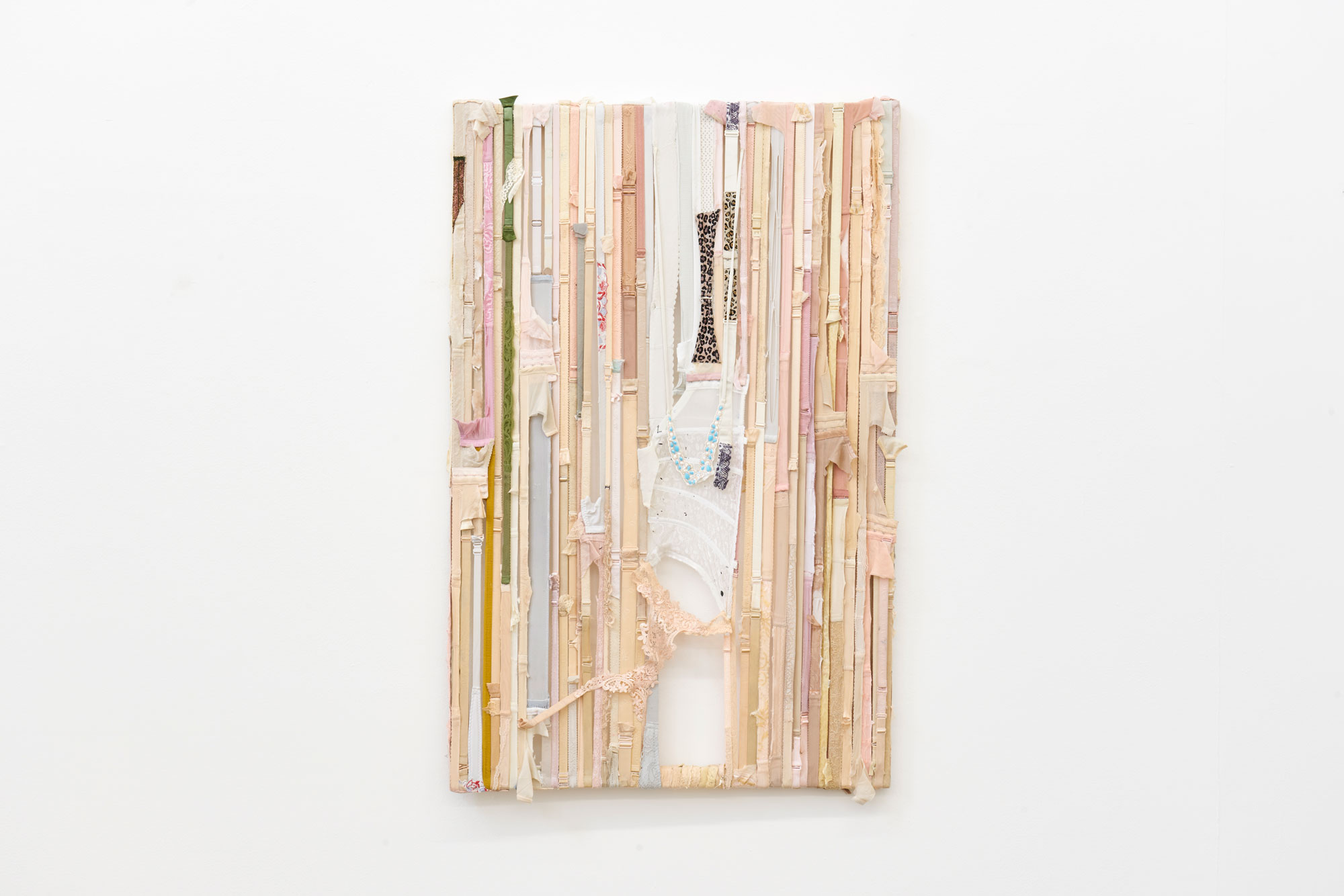
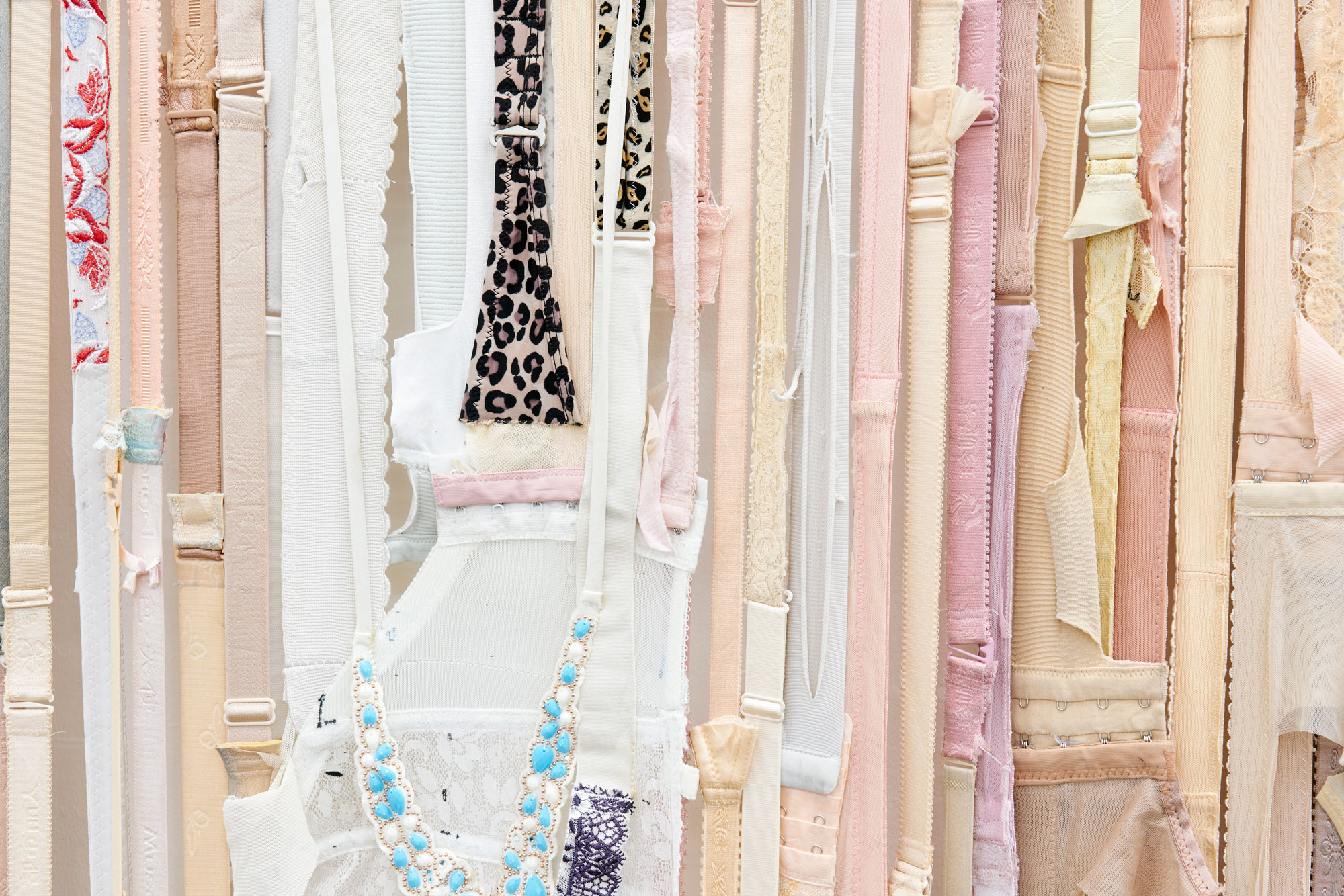


blank
is pleased to present Zviratidzo, a solo exhibition by Kresiah Mukwazhi. The exhibition is a continuation of the artist’s exploration of the world of sex work, while delving deeper into other themes of exploitation and abuse. Darker than previous work, Zviratidzo was created between Harare and Cape Town, caught in some in-between place and transient.
Zviratidzo is a polysemic word that means signs, symbols, symptoms, or revelations, according to the Shona translation of the Bible. Mukwazhi’s exhibition takes as a departure the story of Madzimai Catherine, a prophetess in the Nyenyedzi Nomwe apostolic sect who also is a sex worker. The irony is not lost here, and Mukwazhi invokes an unsettling visual language to interrogate the entanglement of the church and patriarchal systems of control. The exhibition also coincides with the story of Anna Machaya, an underage girl who died during childbirth at a Johanne Marange Apostolic sect shrine, and the public outcry at this death that restarted conversations about child marriages and the autonomy of control over women’s bodies and their destinies.
The exhibition features a selection of new textile and bra strap works that, through their making, articulate the kind of care needed to challenge the negative perceptions placed on women’s bodies when they engage in sexualised labour. In her depictions of dancers and sex workers, their corporeal bodies trapped in the structural arrangements of her sprawling tapestries, Mukwazhi introduces the softness and humanity found beneath the industry’s tough exterior to offer an intimate look at a group of people society would rather forget existed. Mukwazhi pays special attention to social epithets, common attitudes and stereotypes that constitute a further understanding of daily life. She relives memories through unique textile works that celebrate the lives of those who remain in the shadows.
This body of work moves from the promised sensuality of her previous exhibition, Mukando, to the confrontational. It offers a relational grammar to talk about remembering bodies and remembering land. Mukwazhi thinks through her hands to make space for retelling uncomfortable stories, and to provide trace evidence of the urgently-needed justice not yet arrived. Expanding her repertoire to employ cunning, trickster tools, the visual vocabulary of her new works speaks of the nature of power and its silencing strategies associated with violence through metaphor and analogy. The use of the cloth and other materials points to the varied experiences of women, and there are economies of care in the registers used in conversing and storytelling. Mukwazhi refuses totalising, false, biased or inexact narratives to show the limitlessness of lives: these women are backed by a sisterhood that is likened to an ‘army’ in “Murungu anoisa katsvimbo mandiri”. In its remembrance of bodies, her work is also a commentary on the use of labour and the socio-political hierarchy.
In these precarious times when it feels like we are standing on the edge of a precipice, the sex worker is at even more risk. The various lockdowns have narrowed or completely throttled the chances for sex workers to work safely and have made abuse even more prevalent. Mukwazhi’s work is in service of the bodies that remain in the shadows while expanding to invoke conversations of what it means to be in the world. The double messaging in how she appropriates symbols highlights the need for us to take extra care in our perceptions as witnesses. Perhaps it is here, in the artist’s hospitable gaze and symbolic gestures, that we can find the seeds of future social and cultural practices and attitudes in attending to the stories of the Other.
Text by Fadzai Veronica Muchemwa
Kresiah Mukwazhi (b.1992, Harare, Zimbabwe) is a graduate of the National Gallery of Zimbabwe Visual Art School and the Market Photo Workshop in South Africa. Mukwazhi is a multidisciplinary artist whose artistic practice draws on personal experiences and observations of gender-based violence, exploitation and abuse.
Recent exhibitions include Not The Usual Suspects (2018) at the Iziko South African National Gallery, Five Bobh - Painting at the End of an Era (2019) at the Zeitz Museum of Contemporary Art Africa, Mixed Company (2020) at the Norval Foundation and Mukando (2020) at Jan Kaps Gallery, Cologne. In 2022, Mukwazhi will represent Zimbabwe at the Venice Biennale.
Zviratidzo is a polysemic word that means signs, symbols, symptoms, or revelations, according to the Shona translation of the Bible. Mukwazhi’s exhibition takes as a departure the story of Madzimai Catherine, a prophetess in the Nyenyedzi Nomwe apostolic sect who also is a sex worker. The irony is not lost here, and Mukwazhi invokes an unsettling visual language to interrogate the entanglement of the church and patriarchal systems of control. The exhibition also coincides with the story of Anna Machaya, an underage girl who died during childbirth at a Johanne Marange Apostolic sect shrine, and the public outcry at this death that restarted conversations about child marriages and the autonomy of control over women’s bodies and their destinies.
The exhibition features a selection of new textile and bra strap works that, through their making, articulate the kind of care needed to challenge the negative perceptions placed on women’s bodies when they engage in sexualised labour. In her depictions of dancers and sex workers, their corporeal bodies trapped in the structural arrangements of her sprawling tapestries, Mukwazhi introduces the softness and humanity found beneath the industry’s tough exterior to offer an intimate look at a group of people society would rather forget existed. Mukwazhi pays special attention to social epithets, common attitudes and stereotypes that constitute a further understanding of daily life. She relives memories through unique textile works that celebrate the lives of those who remain in the shadows.
This body of work moves from the promised sensuality of her previous exhibition, Mukando, to the confrontational. It offers a relational grammar to talk about remembering bodies and remembering land. Mukwazhi thinks through her hands to make space for retelling uncomfortable stories, and to provide trace evidence of the urgently-needed justice not yet arrived. Expanding her repertoire to employ cunning, trickster tools, the visual vocabulary of her new works speaks of the nature of power and its silencing strategies associated with violence through metaphor and analogy. The use of the cloth and other materials points to the varied experiences of women, and there are economies of care in the registers used in conversing and storytelling. Mukwazhi refuses totalising, false, biased or inexact narratives to show the limitlessness of lives: these women are backed by a sisterhood that is likened to an ‘army’ in “Murungu anoisa katsvimbo mandiri”. In its remembrance of bodies, her work is also a commentary on the use of labour and the socio-political hierarchy.
In these precarious times when it feels like we are standing on the edge of a precipice, the sex worker is at even more risk. The various lockdowns have narrowed or completely throttled the chances for sex workers to work safely and have made abuse even more prevalent. Mukwazhi’s work is in service of the bodies that remain in the shadows while expanding to invoke conversations of what it means to be in the world. The double messaging in how she appropriates symbols highlights the need for us to take extra care in our perceptions as witnesses. Perhaps it is here, in the artist’s hospitable gaze and symbolic gestures, that we can find the seeds of future social and cultural practices and attitudes in attending to the stories of the Other.
Kresiah Mukwazhi (b.1992, Harare, Zimbabwe) is a graduate of the National Gallery of Zimbabwe Visual Art School and the Market Photo Workshop in South Africa. Mukwazhi is a multidisciplinary artist whose artistic practice draws on personal experiences and observations of gender-based violence, exploitation and abuse.
Recent exhibitions include Not The Usual Suspects (2018) at the Iziko South African National Gallery, Five Bobh - Painting at the End of an Era (2019) at the Zeitz Museum of Contemporary Art Africa, Mixed Company (2020) at the Norval Foundation and Mukando (2020) at Jan Kaps Gallery, Cologne. In 2022, Mukwazhi will represent Zimbabwe at the Venice Biennale.